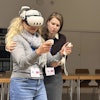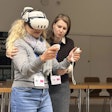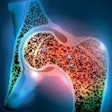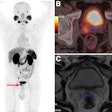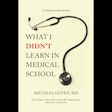
NEW YORK (Reuters Health), May 22 - Exercise echocardiography can predict mortality and major cardiac events in patients with known or suspected coronary artery disease, but who have normal exercise electrocardiogram (ECG) results, new research indicates.
According to the report, new or worsening wall motion abnormalities on exercise echocardiography predicted a 2.73-fold increased risk of death and a 3.59-fold increased risk of major cardiac events.
Treadmill ECG testing looks for ST-segment changes with coronary disease, Dr. Alberto Bouzas-Mosquera, from Hospital Universitario A. Coruna, Spain, and colleagues note. However, prior research has shown that patients often manifest exercise-induced wall-motion abnormalities before such changes are apparent. Therefore, echocardiography may be able to provide prognostic information, when ECG cannot.
In the current study, the researchers attempted to answer this question by analyzing echocardiographic data from 4,004 patients who had no chest pain or ischemic ECG abnormalities during exercise testing. The subjects were considered to have ischemia if new or worsening wall motion abnormalities were seen on exercise echocardiography.
The new findings are reported in the Journal of the American College of Cardiology for May 26.
Overall, 313 patients died and 183 had a major cardiac event during a mean follow-up period of 4.5 years, the authors note.
Almost 17% of patients had ischemia with exercise. The five-year mortality rates in subjects with or without ischemia were 12.1% and 6.4%, respectively, while the corresponding major cardiac event rates were 10.1% and 4.2% (p < 0.001).
On multivariate analysis, the exercise echocardiography results were confirmed as an independent predictor of both mortality and major cardiac events, and adding the results to clinical, resting echocardiographic, and exercise hemodynamic data further improved the predictive model.
In a related editorial, Dr. Frank Flachskampf and Dr. Christian Rost, from Med. Klinik 2, Erlangen, Germany, comment that the current study provides compelling support for "a larger role for imaging stress tests, in particular exercise stress echocardiography, in coronary risk stratification of patients with intermediate pretest likelihood of coronary artery disease."
J Am Coll Cardiol 2009;53:1981-1992.
Last Updated: 2009-05-21 8:00:28 -0400 (Reuters Health)
Related Reading
Exercise echo aids emergency department triage of low-risk chest pain patients, June 10, 2005
Copyright © 2009 Reuters Limited. All rights reserved. Republication or redistribution of Reuters content, including by framing or similar means, is expressly prohibited without the prior written consent of Reuters. Reuters shall not be liable for any errors or delays in the content, or for any actions taken in reliance thereon. Reuters and the Reuters sphere logo are registered trademarks and trademarks of the Reuters group of companies around the world.



